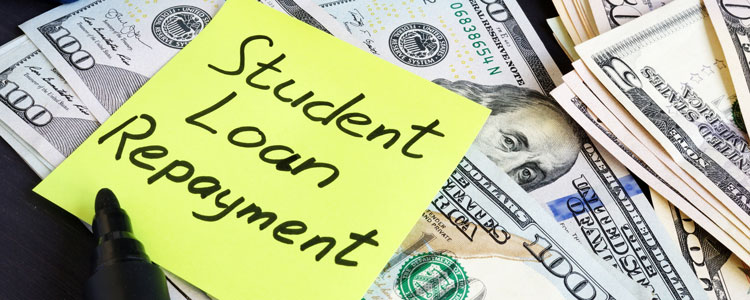If you’ve finished college within the last few years, chances are you’re paying off your student loans. What happens with your student loans now that they’ve entered repayment status will have a significant impact — positive or negative — on your credit history and credit score.
It’s payback time
When you left school, you enjoyed a grace period of six to nine months before you had to begin repaying your student loans. But they were there all along, sleeping like an 800-pound gorilla in the corner of the room. Once the grace period was over, the gorilla woke up. How is he now affecting your ability to get other credit?
One way to find out is to pull a copy of your credit report. There are three major credit reporting agencies, or credit bureaus — Experian, Equifax, and Trans Union — and you should get a copy of your credit report from each one. Keep in mind, though, that while institutions making student loans are required to report the date of disbursement, balance due, and current status of your loans to a credit bureau, they’re not currently required to report the information to all three, although many do.
If you’re repaying your student loans on time, then the gorilla is behaving nicely, and is actually helping you establish a good credit history. But if you’re seriously delinquent or in default on your loans, the gorilla will turn into King Kong, terrorizing the neighborhood and seriously undermining your efforts to get other credit.
Getting the monkey off your back
Like many people, you may have put off buying a house or a car because you’re overburdened with student loan debt. So what can you do to improve your situation? Here are some suggestions to consider:
- Pay off your student loan debt as fast as possible. Doing so will reduce your debt-to-income ratio, even if your income doesn’t increase.
- If you’re struggling to repay your student loans and are considering asking for a forbearance, ask your lender instead to allow you to make interest-only payments. Your principal balance may not go down, but it won’t go up, either.
- Ask your lender about a graduated repayment option. In this arrangement, the term of your student loan remains the same, but your payments are smaller in the beginning years and larger in the later years. Lowering your payments in the early years may improve your debt-to-income ratio, and larger payments later may not adversely affect you if your income increases as well.
- If you’re really strapped, explore extended or income-sensitive repayment options. Extended repayment options extend the term you have to repay your loans. Over the longer term, you’ll pay a greater amount of interest, but your monthly payments will be smaller, thus improving your debt-to-income ratio. Income-sensitive plans tie your monthly payment to your level of income; the lower your income, the lower your payment. This also may improve your debt-to-income ratio.
- If you have several student loans, consider consolidating them through a student loan consolidation program. This won’t reduce your total debt, but a larger loan may offer a longer repayment term or a better interest rate. While you’ll pay more total interest over the course of a longer term, you’ll also lower your monthly payment, which in turn will lower your debt-to-income ratio.
- If you’re in default on your student loans, don’t ignore them — they aren’t going to go away. Student loans generally cannot be discharged even in bankruptcy. Ask your lender about loan rehabilitation programs; successful completion of such programs can remove default status notations on your credit reports.

